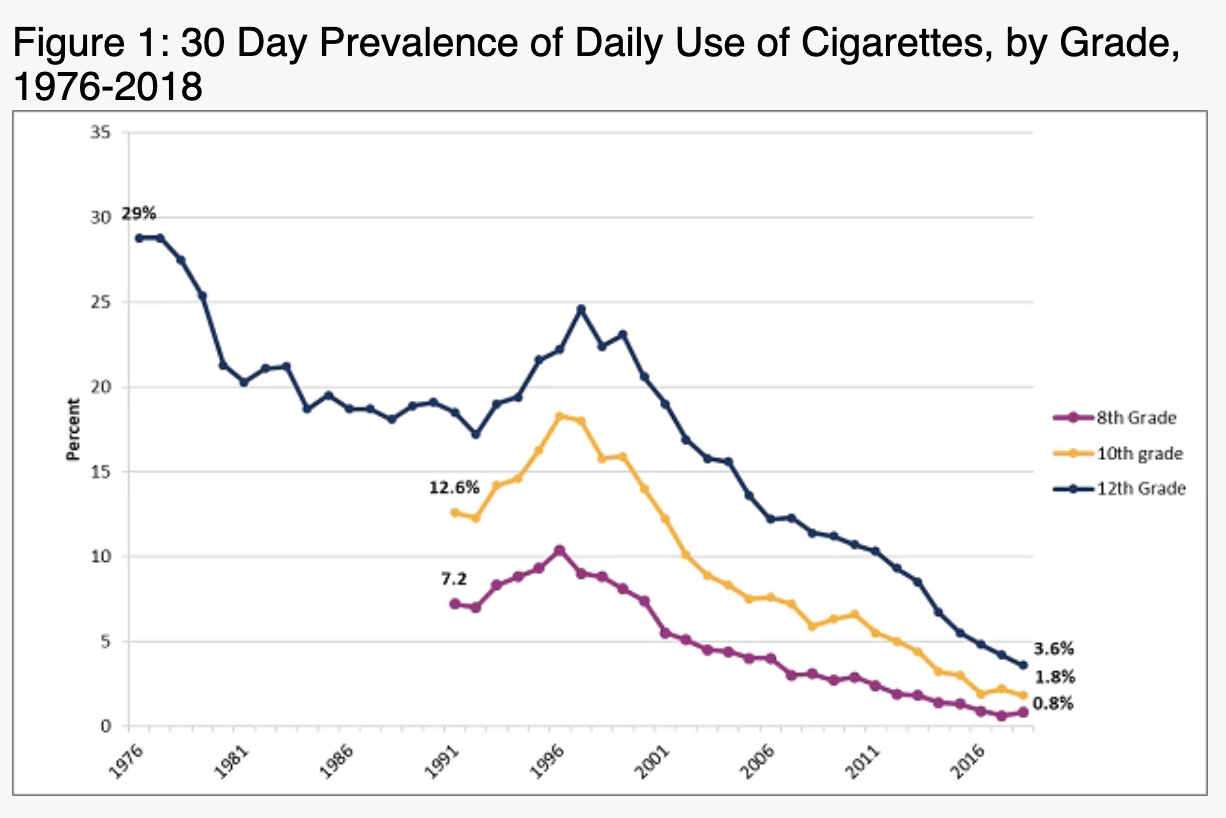Senate Majority Leader Mitch McConnell, R-Ky., on Monday introduced a proposal to raise the federal age on purchasing tobacco products to 21, which is an unnecessary example of paternalistic intervention.
In an effort to demonstrate that he was doing something to address teen smoking, a problem that has dramatically declined over the decades, McConnell, joined by Sen. Tim Kaine, D-Va., introduced the Tobacco-Free Youth Act, which would raise the age on the purchase of any tobacco products, including cigarettes, e-cigarettes, and vaping devices.
.@Senatemajldr: “Today I’m introducing federal legislation to make 21 the new minimum age for purchasing any tobacco product anywhere in the United States.” pic.twitter.com/qQ86llfUsS
— CSPAN (@cspan) May 20, 2019
The proposal should be of concern to those who care about limiting the size and scope of government.
To start, if there are to be any laws regarding the proper purchasing age, they should be set at the state and local level to allow for regional differences of opinion, rather than by the federal government. That the federal government already regulates lots of things, including the purchase of tobacco, is not a reason to impose another layer of rules on states, which will require them to step up enforcement on retailers who now routinely sell tobacco products to those over 18.
Further, if there is going to be an age, it doesn’t make much sense to set it at 21. Americans attaining the age of 18 are considered responsible enough to serve in the military or to vote for our leaders, so there’s absolutely no reason to treat them as incapable of evaluating risks associated with tobacco use. Though, granted, I’d also be making a similar case about drinking ages, at least in that case it could be argued that drunk drivers pose a threat to the safety of everybody else. Evidence regarding second-hand smoking is (at a minimum) much more indirect, especially when it comes to vaping and e-cigarettes.
It’s also unclear why this is such an urgent issue. E-cigarette usage may have been growing for the past few years, but that is hardly a reason for this massive intervention, especially since they are relatively new products whose long-term health effects are still being debated and arguably overblown.
Over time, teen cigarette usage has dramatically decreased. According to data cited by the Department of Health and Human Services, the number of high school seniors describing themselves as daily smokers declined from 28.8% to just 3.6%, or just one in 25.

So this is hardly an urgent crisis begging for such a drastic federal intervention.
